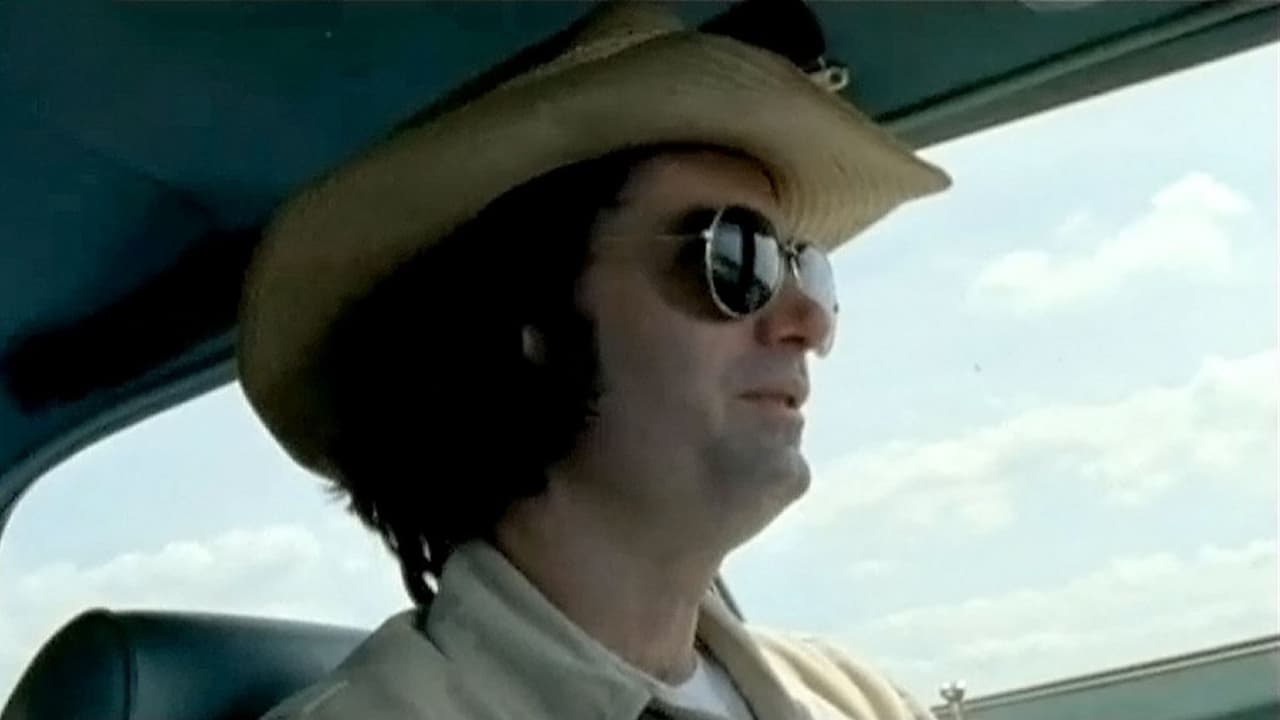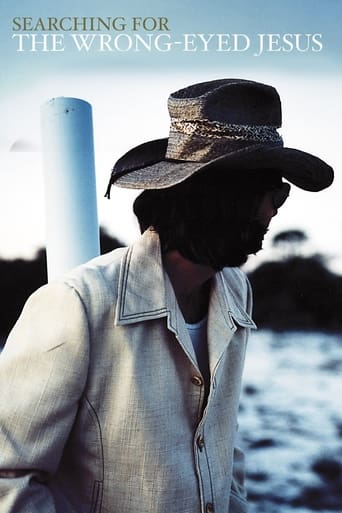Jeremiah Taylor
In this rambling, self-indulgent wreck of a film, alternative country singer Jim White–-and a host of other music industry "outsiders"--team up with two British film makers to talk (and sing) about the south. While White, the documentary's main searcher for the soul of the south, is by no means a stupid man, neither he nor his British "translators" possess enough profundity to warrant White's constant--and self-consciously "earthy"--philosophizing: the best of his musings amount to bland truisms (e.g., that southern society forces its members into certain molds and excludes those beyond the pale of its narrow norms (a trait, in truth, of most _human societies_)); the worst come across as the disjointed prattling of a man in love with his own voice--a man determined to tell us that his "southern blood" grants him deep, mystic insights into this "exotic" land and its incomprehensible inhabitants. Of course, such metaphysical feats of interpretation are intended to add an air of spiritual legitimacy to White's music: the film, after all, is a search for the world described in White's first album, "Wrong-Eyed Jesus." Such skewed, presumptuous, and (on White's end especially) doubtlessly financial and egoistic aims are especially dangerous; for many viewers will take--and many have in fact taken--this film as a genuine window into the culture of the southern United States.The problem is that White and his British collaborators possess such a powerful--and, in the issue, _predictable_--set of preconceptions about what they should find in the south, that they hardly bother to look beyond the narrow ken of the camera or listen to anything save the pseudo-profound and affected postmodern "folksiness" of the music and musicians they carry with them. The south, they say (resurrecting a tired old bit of southern gothica), is locked in a Manichaean struggle between Flesh and Spirit, Devil and God; the south is peopled by dead-eyed Pentecostal shouters, undulating whores and raging drunkards, hard-luck miners and born-again deep-fryers; and the south, they say, is all the same--a great cultural and spiritual monolith from the Louisiana Delta to the eastern coalfields of Kentucky. Such gross oversimplifications both complement and determine the film's subsequent course. White and company--with silent, superfluous concrete Christ in tow--spend more time babbling about their own "weighty" insights and showcasing their own music (sometimes while local ragamuffins stare in staged wonder at these "furriners" explicating their little southern souls in song) than in actually interacting with the "natives." When locals do enter the lens, the encounter is always brief, shallow and artificial--indeed, many of the interviews seem staged--and the overall feeling is often _exploitive_. A grotesque menagerie of stereotypes is wheeled before the camera, each one comporting itself in a fashion consonant with the film makers' expectations: the saved cavort with the Spirit and dribble glossolalia from contorted lips; violent "bad men" with vacant faces and empty, idiotic bravado shoot stop signs, do meth, go to juke joints, go to prison; trailer-dwelling sluts revel in sex, bars and bad men; coal miner-banjoists live hard lives and are inscrutable. And occasionally the filmmakers' cursory stabs at even the most predictably stereotypical storytelling degenerate into freak-show gawking, as when the camera, now close up, leers pornographically at the jumbled tattoos of a wretched trailer-denizen or lingers, almost mockingly, upon the painfully unfortunate physiognomy of one of the twice-born.That said, does _Searching for the Wrong-Eyed Jesus_ possess any commendable qualities? Well, unless you are a doggedly dedicated fan of Jim White or some of the other artists featured here, the answer is no. The camera work, of course, is sometimes passable--and a few of the shots of industrial architecture are _vaguely_ reminiscent of similar scene compositions in Robert Flaherty's _Louisiana Story_ (1948). But Jim White's avowed quest for the southern power in his blood is too flawed by self-absorption, incoherence, and reliance on cheap stereotypes to be salvaged by any minor aesthetic merits. Even casual students of southern culture should look askance at a film that runs roughshod over a large, often troubled but intricately complex and diverse region--a film that, when it condescends to look at southern people at all, only stares at them as specimens, whose life-habits, histories and individual destinies are as straightforward and predictable as those of a toad in a terrarium. White doesn't need southern blood, a spiritual epiphany, a train of fellow independent artists or even some naive British documentarians to "discover" the "Mind of the South" as it is depicted here. A century of popular media, replete with grotesque stereotypes, smug explication, and smarmy missionary sentiment, has interpreted THAT south again and again. White and company are simply pouring old wine into a greasy, poorly stitched bag. Despite initial promises of a spiritual journey, one soon realizes that _Searching for the Wrong-Eyed Jesus_ hasn't gone anywhere at all. Indeed, all of this crass, sterile, artistic self-gratification is transpiring right upon the old, familiar dunes of the "Sahara of the Bozarts." Somewhere the ghost of H. L. Mencken is snickering.
kosmoskid
Being an import into the South, I was mesmerized by the opening scenes of this movie, and was filled with a unique representation of the Gothic South. I was displeased though to read the comments here with a clear misunderstanding of the movie was trying to portray. The movie is about the South, not about a mindless devotion to Pentecostalism. Although that is portrayed in the movie, I feel it's important to understand that the South, unlike other parts of the country is a place full of the clash of religion and "hell-raising." The Church is only one element in this film as the other elements of ghoulish beauty, good-natured people, and a love for simplistic things seems to have been overlooked by other commentaries here on IMDb. I just felt inclined to mention the movie is more about THE South, than just a pocket of the Church, and it's notable that the comments have all come from Yankees, who after seeing this movie, might not still have a clue about the charming,haunting beauty of the South.
sashaormond
This was definitely the most intriguing documentary I have seen in years. While it deals with the obvious issues facing the sometimes impoverished South, it's subtext is poignant and beautifully haunting. I felt swept away into a world so strange, and somehow peaceful in it's harshness. Jim White, the films narrator, and musical contributor, seems to be a wise man with much to teach in his portrayal of religion and human nature, not to mention his amazing bluegrass melodies and guitar whines. This soundtrack is amazing! Rootsy and real and rich with history. See this doc if you are interested in our multi faceted world with it's many dark secrets, beautiful truths, religion and spirituality found in every shadow. You just need to look.

